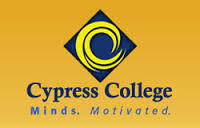What do they do?
Monitor safety of the aircraft cabin. Provide services to airline passengers, explain safety information, serve food and beverages, and respond to emergency incidents.
Also known as:
Flight Attendant, In-Flight Crew Member, Inflight Services Flight Attendant, International Flight Attendant, Purser
-
0%
Change
Ranks #25 in job growth rate140Job Openings
Ranks #18 in net job growth
Looking for colleges that offer a specific major? Use the College Match Tool to find your best-matched schools and discover your estimated Net Price!
- Bachelor's degree (36%)
- Some college, no degree (30%)
- Associate's degree (13%)
- High school diploma equivalent (12%)
- Master's degree (7%)
- Less than high school diploma (1%)
- Doctorate or Professional Degree (1%)
People in this career often have these skills:
- Speaking - Talking to others to convey information effectively.
- Active Listening - Giving full attention to what other people are saying, taking time to understand the points being made, asking questions as appropriate, and not interrupting at inappropriate times.
- Monitoring - Monitoring/Assessing performance of yourself, other individuals, or organizations to make improvements or take corrective action.
- Social Perceptiveness - Being aware of others' reactions and understanding why they react as they do.
- Service Orientation - Actively looking for ways to help people.
- Coordination - Adjusting actions in relation to others' actions.
People in this career often know a lot about:
- Customer and Personal Service - Knowledge of principles and processes for providing customer and personal services. This includes customer needs assessment, meeting quality standards for services, and evaluation of customer satisfaction.
- Public Safety and Security - Knowledge of relevant equipment, policies, procedures, and strategies to promote effective local, state, or national security operations for the protection of people, data, property, and institutions.
- English Language - Knowledge of the structure and content of the English language including the meaning and spelling of words, and rules of composition and grammar.
- Transportation - Knowledge of principles and methods for moving people or goods by air, rail, sea, or road, including the relative costs and benefits.
- Psychology - Knowledge of human behavior and performance; individual differences in ability, personality, and interests; learning and motivation; psychological research methods; and the assessment and treatment of behavioral and affective disorders.
People in this career often have talent in:
- Oral Expression - The ability to communicate information and ideas in speaking so others will understand.
- Speech Clarity - The ability to speak clearly so others can understand you.
- Oral Comprehension - The ability to listen to and understand information and ideas presented through spoken words and sentences.
- Speech Recognition - The ability to identify and understand the speech of another person.
- Problem Sensitivity - The ability to tell when something is wrong or is likely to go wrong. It does not involve solving the problem, only recognizing that there is a problem.
- Near Vision - The ability to see details at close range (within a few feet of the observer).
- Deductive Reasoning - The ability to apply general rules to specific problems to produce answers that make sense.
People in this career often do these activities:
- Inspect aircraft or aircraft components.
- Provide transportation information to passengers or customers.
- Monitor patron activities to identify problems or potential problems.
- Monitor activities of individuals to ensure safety or compliance with rules.
- Maintain surveillance of individuals or establishments.
- Assist others during emergencies.
- Provide first aid or rescue assistance in emergencies.
- Resolve issues affecting transportation operations.
- Receive information or instructions for performing work assignments.
- Assist customers to ensure comfort or safety.
- Monitor availability of equipment or supplies.
- Record operational details of travel.
- Assist passengers during vehicle boarding.
- Inspect facilities to ensure compliance with safety, quality, or service standards.
- Clean vehicles or vehicle components.
- Operate communications equipment or systems.
- Collect fares or payment from customers.
- Verify information or specifications.
- Sell products or services.
This page includes data from:

 Occupation statistics: USDOL U.S. Bureau of Labor Statistics Occupational Employment Statistics
Occupation statistics: USDOL U.S. Bureau of Labor Statistics Occupational Employment Statistics
 Videos: CareerOneStop, USDOL/ETA and the Minnesota Department of Employment & Economic Development
Videos: CareerOneStop, USDOL/ETA and the Minnesota Department of Employment & Economic Development







